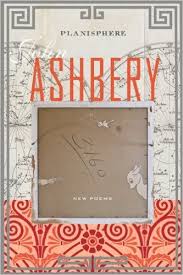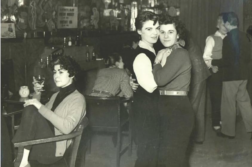 Planisphere: New Poems
Planisphere: New Poems
by John Ashbery
Ecco. 160 pages, $24.99
OF THE LITERARY GENRES in contemporary times, poetry is undoubtedly the most challenging and complex to read and critique, and the work of John Ashbery is elusive, wayward, and refractory even by the standards of modern poetry. A surviving member of the New York School of poets that also included Kenneth Koch and Frank O’Hara, Ashbery keeps alive its conversational, bebop syntax (“You just go with your nerve”). He is a confessed gleaner of overheard conversations, which he occasionally uses as starting or ending points for his free-associative riffs. (He once remarked: “I don’t look on poetry as closed works. I feel they’re going on all the time in my head and I occasionally snip off a length.”)
If reading the poetry of Samuel Beckett is like a walk on the Irish moors at dusk, reading Ashbery’s is a stroll through the Villa d’Este, filled with alleys of generously gushing fountains and rainbow-inflected sprays, challenging as a rock wall and elusive as a wet dream. Surely any explication de texte of Ashbery’s verse is a fool’s errand, since his poems are (as the title of one collection, “Flow Chart,” implies) the result of a creative mind processing its slipstream of everyday perceptions and imagistic analogies arising from the subconscious. Ashbery has often remarked that his poetry is shaped by what Walter Pater called “the condition of music.” His large body of work is an attempt to grapple with the ineffable events of life: the literary equivalent of surrealist and abstract action painting. “I write with experiences in mind, but I don’t write about them, I write out of them,” he once explained.
Brad Gooch, author of an authoritative biography of Frank O’Hara and the New York school, recently said of Ashbery in these pages: “I love his poems more than anyone’s alive. I do think, in terms of O’Hara, they are the great Laurel and Hardy (or Apollo and Dionysus) perfect team. O’Hara’s poems were ‘I do this, I do that’; snapshots of moments in time, party videos preserved on an iPod of a poem. Ashbery seems more the ‘I Think This, I Think That’ poet, recording not moments in three-dimensional, interpersonal time—‘Personism’—but moments of consciousness.”
Recognized today as a major American poet and still quite prolific at 83, Ashbery has won nearly every major American award for poetry since his first collection, Some Trees (1956), was selected by W. H. Auden for the Yale Younger Poets Series. He earned his laurels by persistently honing his craft, defying criticism from proponents of the avant-garde. His avowed goal is to produce poetry that will remain beyond the grubby paws of academics: “to produce a poem that the critic cannot even talk about.” Unlike openly gay poets such as James Merrill and Thom Gunn, Ashbery does not refer directly to his sexuality in his poems. Widely accepted by the academic community, he seems reluctant to upset the institutional applecart and risk ghettoization: any queer perspective or sensibility must be decoded or inferred. For example, such a sensibility might be discerned in his finely tuned sense of paradox.
Ashbery’s latest collection, Planisphere (2009), is dedicated to David Kermani, his partner of 35 years. They met in 1970, when Ashbery was 42 and Kermani was 23. The new book demonstrates that the poet is still hot to trot, and his creative juices are flowing freely. The title refers to a map representing the flattened projection of the surface of a sphere, and is a nod to the metaphysical conceit in Andrew Marvell’s poem, “The Definition of Love.” “Planisphere” is a sly paradox; a handy surrealistic metaphor for the polymorphous poetic cosmos “cramp’d” between the flyleaves of his new collection. The poems encompass everything from aesthetics (“Zero Percentage”) and movie nostalgia (“They Knew What they Wanted,” “The Tower of London,” “Sons of the Desert”), to a sense of autumnal reflection (“In A Wonderful Place”). In the first of two poems titled “Episode,” Ashbery waxes nostalgic, with a sense of resignation:
And if it comes back to being all alone
At the starting gate, so be it. We hadn’t wanted
This fuss, these extras. We were calm
Under an appearance of turmoil, and so we remain
Even today, an unwanted inspiration
To those who come immediately after
As well as those who came before, lots of them,
stretching back into times of discussion.
I told you so, we can handle it, hand on
the stick shift headed into the billboard
labeled Tomorrow, the adventures of new music,
melismas shrouding the past and passing days.





